A JOURNEY WITH THE SAMURAI
First published in 1980, this Japanese novel by Shūsaku Endō tells a fictionalized story of a 17th-century diplomatic mission to "Nueva España," Mexico.
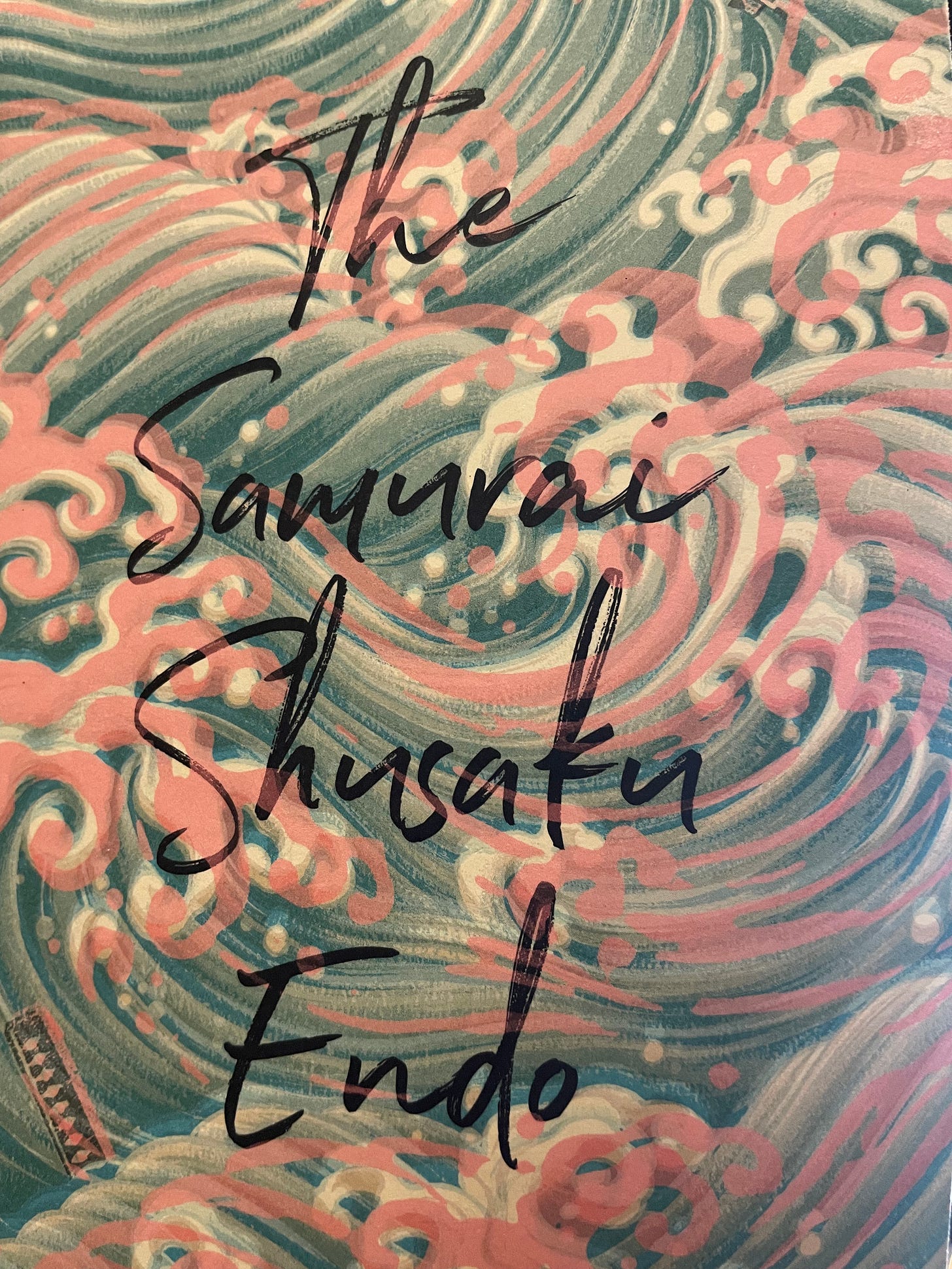
In the last eight weeks I’ve been traveling by planes, trains and automobiles through the United States, Japan and the Philippines. During both my domestic and international trips I carried books and short stories to read, like a diligent Substack maven who intended to post on Sunday or die. As my travel progressed, however, my days became more and more unpredictable and I found it exceedingly hard to read and publish, especially upon finding myself in a new place literally every day.
My intentions have always been good though, and one of the gifts of this weekly Substack endeavor is that I’m learning about the world one story at a time. A literary refresher alongside travel can be like a masterclass about a place, and the novel I chose, heavy and arduous as it is, has been illuminating both about the Japanese ethos and about the nature of the individual.
For my trip I decided I must carry The Samurai by Shūsaku Endō. What I didn’t realize when I chose this work was how this book would throw me into the beginning of the Edo period (1603-1868) in Japan. This rule was believed to have been a time of peace, stability, and economic growth under the rule of the Tokugawa shogunate, also known as the Tokugawa period. The reference to the Edo period was ubiquitous throughout my Japanese sojourn and by and by the book began to answer some questions about the makings of this society.
Shūsaku Endō’s preface to The Samurai gave me much needed clarity. In the early 1600s Japan was on the verge of “being swallowed up into the extremely complex and perilous maelstrom of international politics.” European colonies were struggling to establish their influence in every corner of Asia, building ships to increase trade and thus multiplying their wealth. Presumably under the innocuous banner of commerce, these colonies also planned to preach their religion in these new, “pagan” lands.
The spread of religion throughout Asia is an intriguing subject and The Samurai lets us in on how a missionary by the name Father Velasco goes about his agenda even as he’s aiming, ultimately, to be the bishop of the land. The approximate sea distance between Japan and the Philippines is about 4,800 miles and, especially in the context of my recent trip, what is absolutely mind-boggling is how the Spanish missionaries were unable to accomplish what they were able to do so successfully in The Philippines. The Samurai then is really about what made the Japanese a different breed in the human pantheon. We also begin to understand why they became who they were in the early part of the 20th century—vindictive warriors for whom iniquity and violence were as natural as breathing.
In The Samurai we find ourselves in early 17th century Japan where watch how the heads of provinces are unable to unite. They use subterfuge to vanquish each other. Into this melee arrives the white man with all his goods and his staggering ship.
It was a powerful, manly ship, more awesome than any of his Lordship’s war vessels. The realization that in two days they would board this ship, and that this ship would determine the fate of each of them.
We understand that in 1613, four low-ranking Japanese samurai, accompanied by a Spanish priest, set sail for Mexico to bargain for trading rights with the West, in exchange for a Catholic crusade in Japan. Shūsaku Endō has mined from history to narrate this endlessly fascinating story of a voyage of two groups of people to a new land. This is not a quick read for there are many characters in this story of a long voyage; furthermore, some elements of history are unclear until we delve deeper into the story.
The Spanish crew were singing something with a strange melody. Several Japanese deckhands scrambled up the mainmast, and at orders from the Spanish sailor they let down the sails, which looked like enormous flags. The halyards creaked, and white seagulls howled like cats. Before anyone realized what was happening, the great ship slowly got under way.
This novel ripples with color and imagination. Aongside the motley crew we too become travelers and explorers.
The landscape of Nueva Espana, which they were seeing for the first time, was blinding, hot and white. Ahead of them gaped an endless wilderness studded with giant cacti, and in the far distance stretched mountains spotted with granite, looking ast hough they had been sprinkled with salt.
We are in the head of Samurai Hasekura—who is torn between his love of his piece of land and his allegiance to his “Lordship”—and that of Father Velasco—who is also doing double duty as an interpreter choosing to hold back details whenever it’s beneficial to him. While cruising in Velasco’s head, we are also privy to what an ambitious missionary thinks of the inscrutable, cunning natives.
Indeed the clash of cultures is a central theme of The Samurai and this clash is depicted in the two characters we follow throughout the story. Where Father Velasco embodies the aggressive vocal western philosophy of attempting to change or kill, Samurai Hasekura represents a Japan that wants to hold on to its identity at any cost. As the voyage progresses, we watch people succumb to the sea or to their own moral failings. It becomes clearer and clearer that a Japanese society may never cleave to western ownership.
As I said in an earlier post about a Bengali short story of two lovers, I’m also juggling several writing projects at the moment and, naturally, my Substack posts have taken a hit. This is also a year of great change for me and I’ve become somewhat forgiving of myself. You see, that’s the only way to be when you’re embarking on a journey into “grandmotherhood” in just a few days. For the next few weeks, I’ll read and, hopefully, write between caring for my baby and my baby’s baby; if I can write just two good paragraphs once a week, I’ll be grateful.



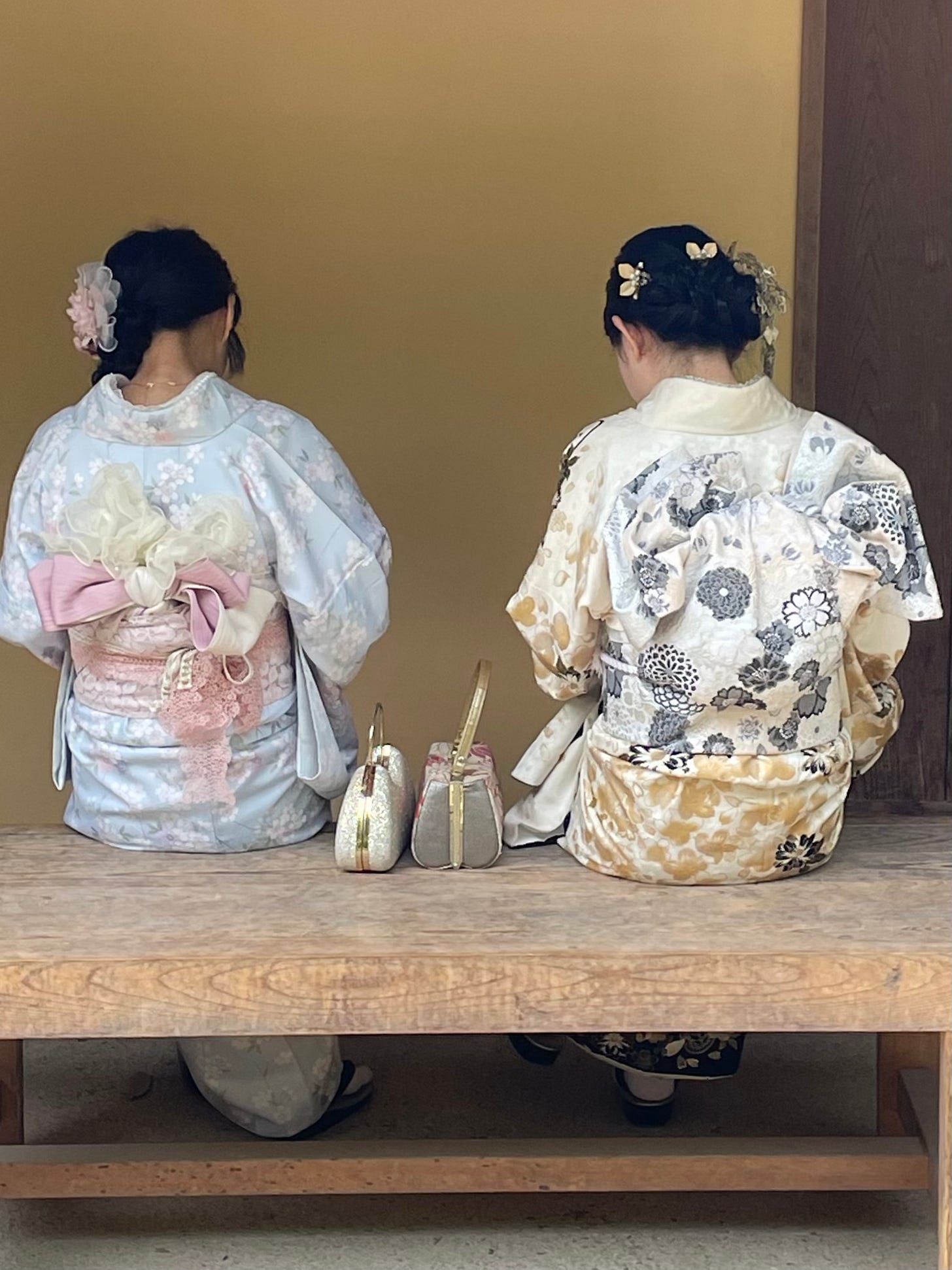
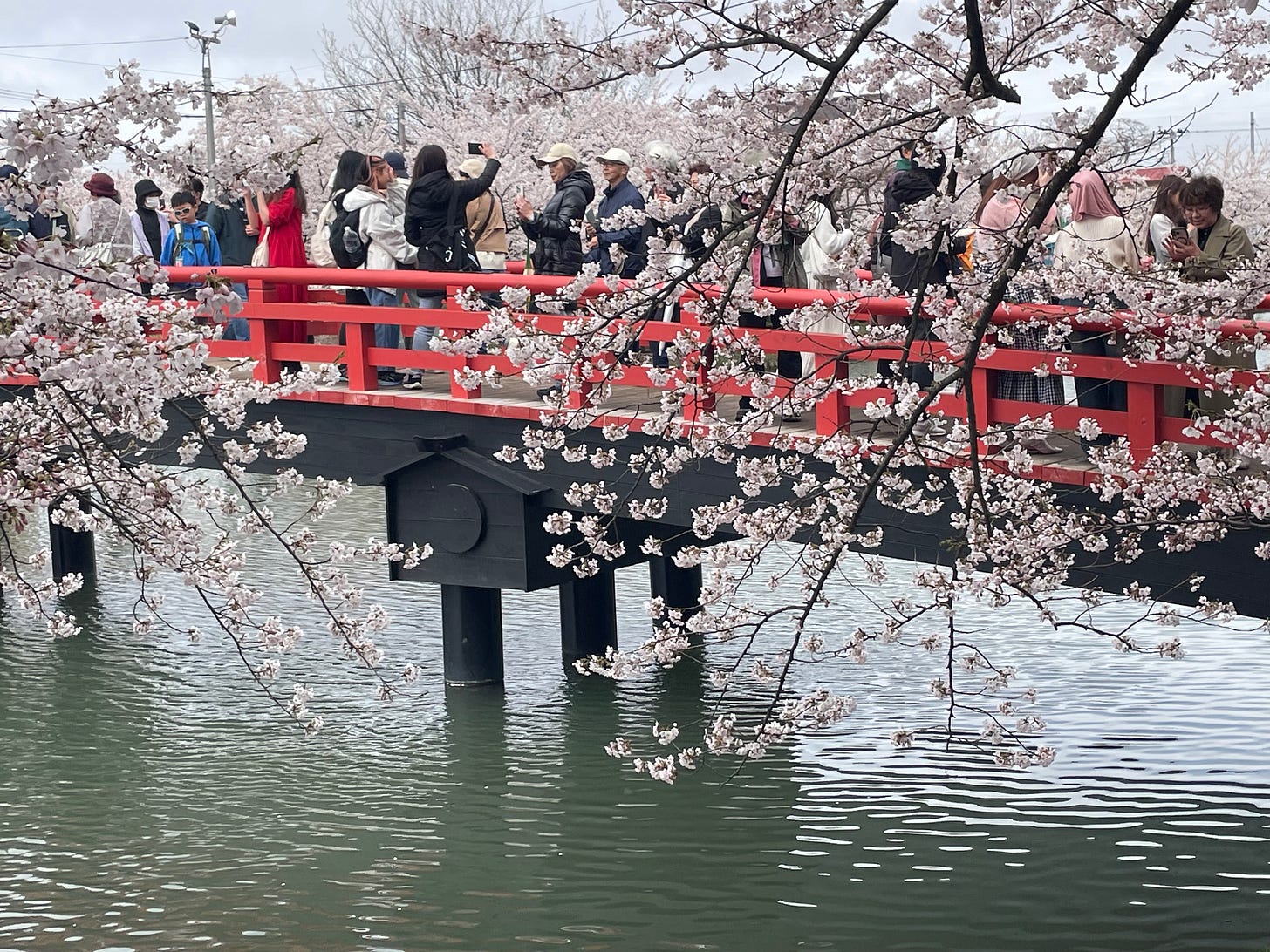
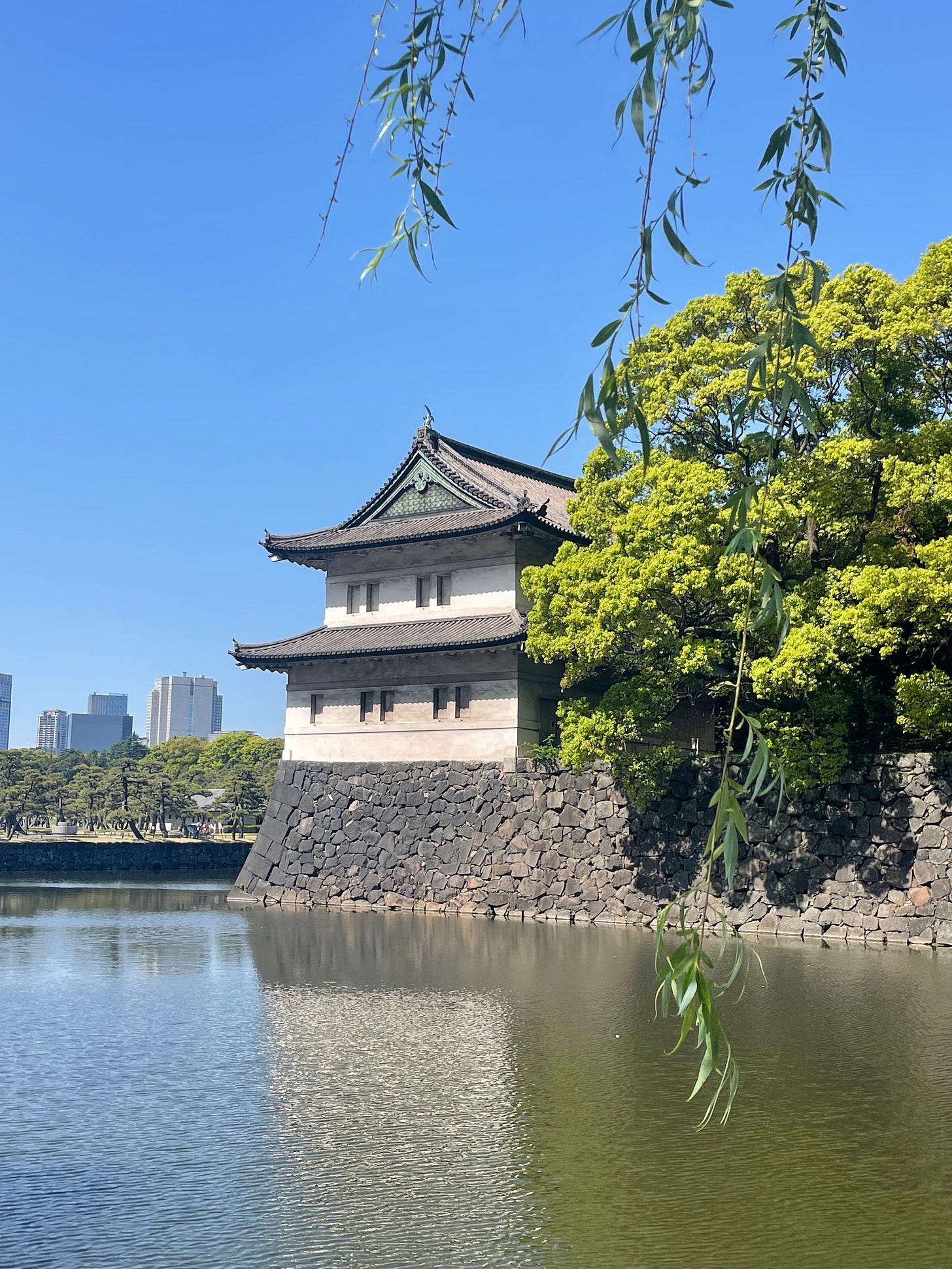
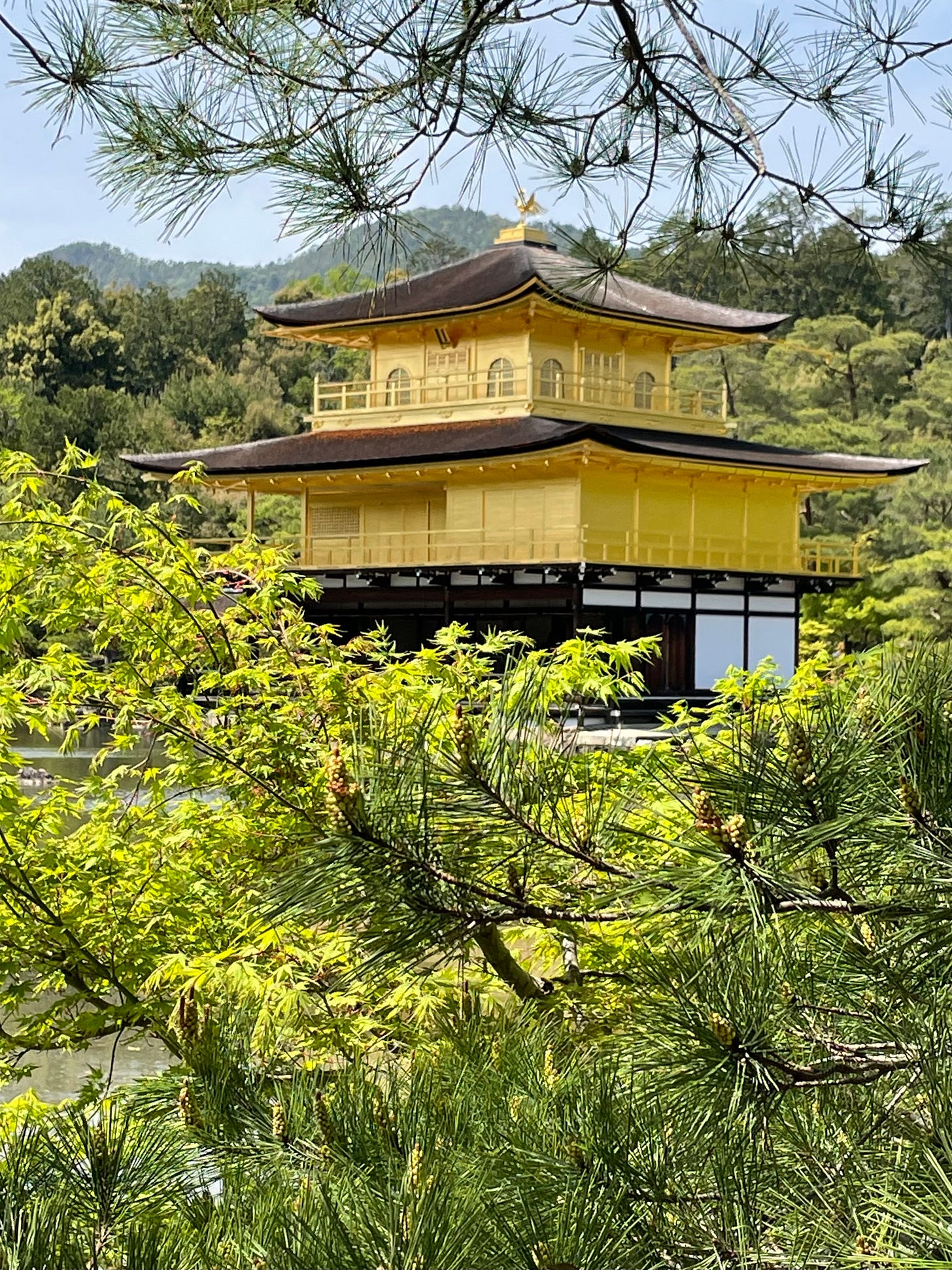
Kalpana, what a wonderful news! I'm so jealous, I long to become a grandmother too.
I'm always happy to read your posts, but take your time and enjoy being with your family. My best wishes and congratulations to all of you!